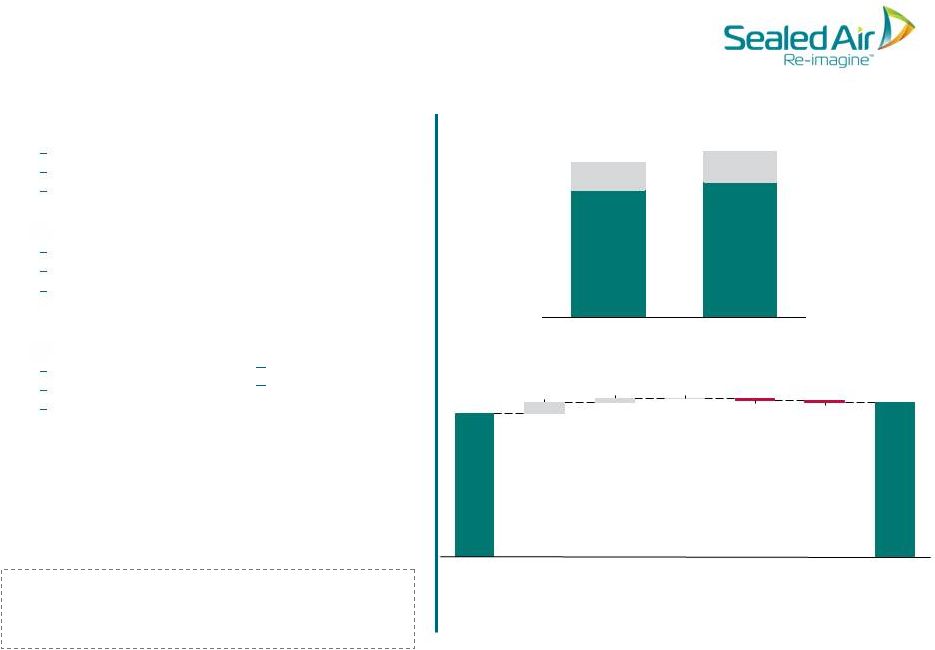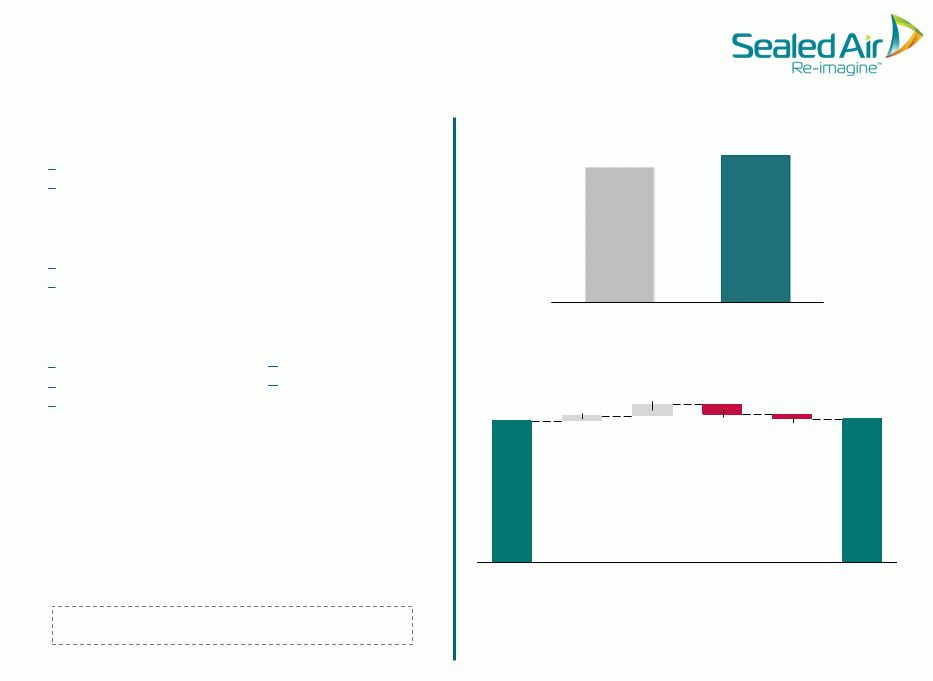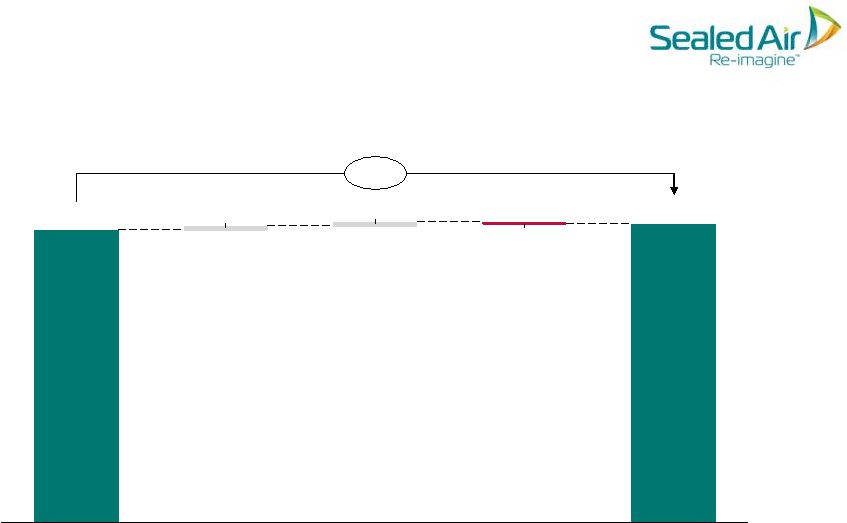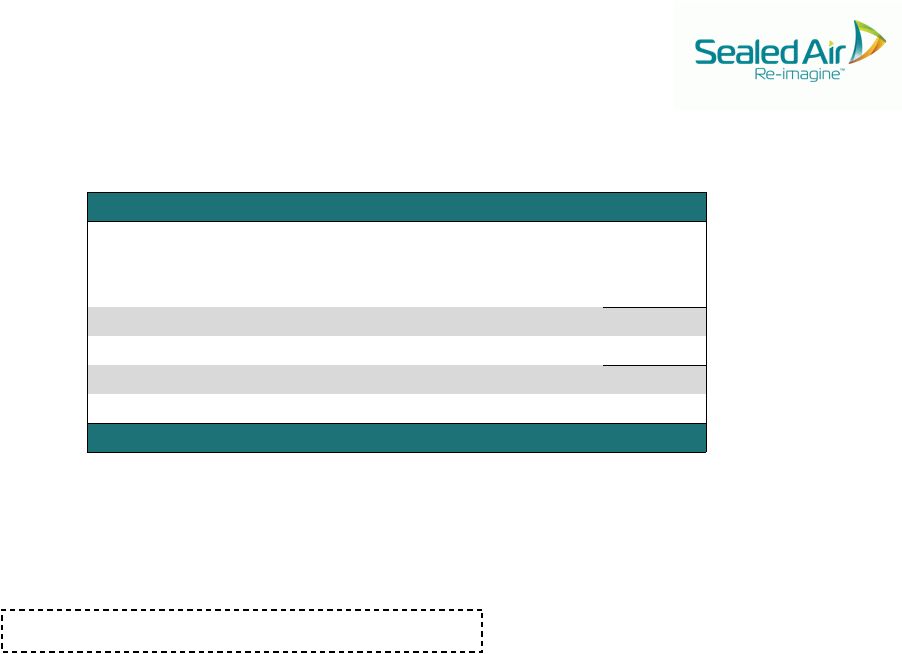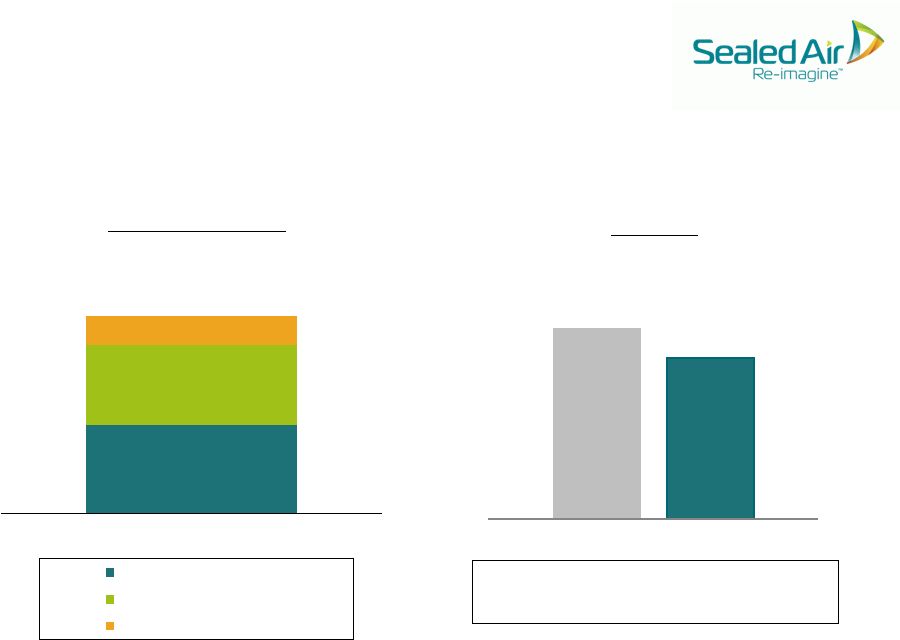Safe Harbor and Regulation G Statement 2 This presentation contains “forward-looking statements” within the meaning of the Private Securities Litigation Reform Act of 1995. Forward-looking statements can be identified by such words as “anticipates,” “believes,” “plan,” “assumes,” “could,” “estimates,” “expects,” “intends,” “may,” “plans to,” “will” and similar expressions. These statements reflect our beliefs and expectations as to future events and trends affecting our business, our consolidated financial position and our results of operations. Examples of these forward-looking statements include expectations regarding our anticipated effective income tax rate, the potential cash tax benefits associated with the W.R. Grace settlement, potential volume, revenue and operating growth for future periods, expectations and assumptions associated with our restructuring programs, availability and pricing of raw materials, success of our growth initiatives, economic conditions, and the success of pricing actions. A variety of factors may cause actual results to differ materially from these expectations, including general domestic and international economic and political conditions; changes in our raw material and energy costs; credit ratings; the success of restructuring plans; currency translation and devaluation effects, including Venezuela; the competitive environment; the effects of animal and food-related health issues; environmental matters; and regulatory actions and legal matters. For more extensive information, see “Risk Factors” and “Cautionary Notice Regarding Forward-Looking Statements,” which appear in our most recent Annual Report on Form 10-K, as filed with the Securities and Exchange Commission, and as revised and updated by our Quarterly Reports on Form 10-Q and Current Reports on Form 8-K. While we may elect to update these forward-looking statements at some point in the future, we specifically disclaim any obligation to do so, whether as a result of new information, future events, or otherwise. Our management uses non-U.S. GAAP financial measures to evaluate the Company’s performance, which exclude items we consider unusual or special items. We believe the use of such financial measures and information may be useful to investors. We believe that the use of non-U.S. GAAP measures helps investors to gain a better understanding of core operating results and future prospects, consistent with how management measures and forecasts the Company's performance, especially when comparing such results to previous periods or forecasts. For important information on our use of non-U.S. GAAP financial measures and information, including reconciliations of such non-U.S. GAAP financial measures and information to comparable U.S. GAAP measures and information, please refer to the financial tables and information provided in our earnings release. | 



